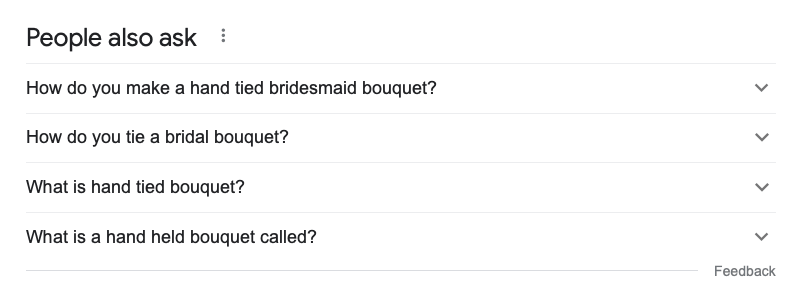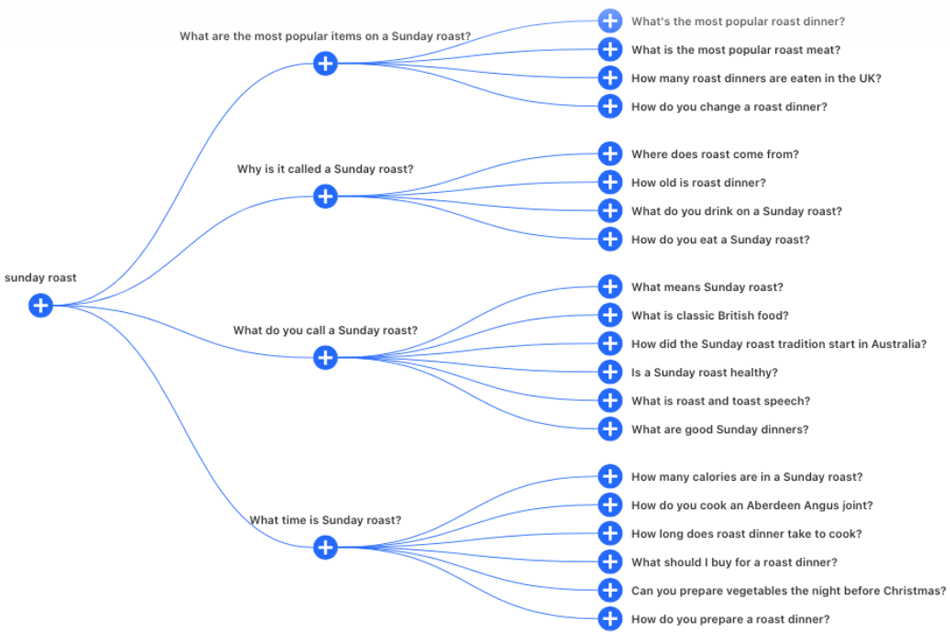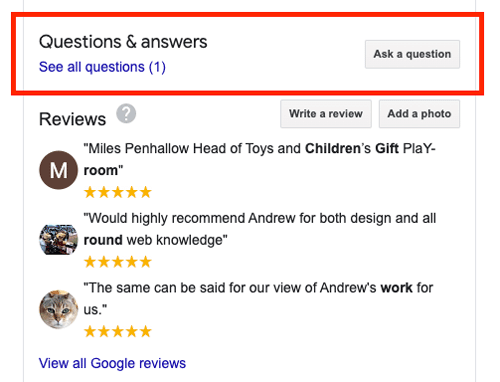If you find and answer the right frequently asked questions on your website and add them in a way that keeps Google happy, you’ll go a long way towards improving your search engine listings, increasing your page rank and converting visitors into customers.
Now you’re convinced of the need for FAQs on your website, let’s deal with some of the practical issues.
Table of Contents
Collecting Basic FAQs
So where can you discover questions that are both relevant to your business, convert visitors into customers and may even drive additional traffic to your website?
Well, the obvious place to start for any business is with your existing customers.
Are there questions that you find yourself being asked time and again?
In the current climate, if you’re conducting face-to-face meetings or you’re visiting people’s homes or places of work, then a series of FAQs covering COVID-19 safety measures would be a great place to start. These will help to put people’s minds at ease and remove potential obstacles or objections.
Then there are the usual questions about price, how long will the work take (if it’s a service) or how long will delivery take (if it’s a product).
These are the basics and you should be able to come up with a few of these that are good for your business.
How To Find FAQs to Improve Your SEO
If the above set of FAQs tackled the most commonly asked, practical questions your current customers ask, then how do we go about attracting new visitors to your website?
It’s all about meeting user intent.
You need to find out the questions that people are asking online that are relevant to your business. Matching this user intent – especially on a local scale – should help you move up the rankings.
So where exactly can you find out what questions people are searching for?
Free FAQ Research Tools
Google Search Console
The best place to start is with the data that you already have and that is most relevant to your website.
- Log into Google Search Console
- Click on OPEN REPORT next to Performance
- Click on the filter icon in the main results panel
- Check the box labelled Top queries
- Next to the Contains filter, enter question words, such as what, why, when, who and how

You should to see what questions your website is already receiving impressions and potentially traffic for.
Make a note of these questions as well as the number of clicks, impressions, the click through rate (CTR) and your position in the rankings.
By default, Google Search Console give you the last three months. You can change this date period by clicking the pencil icon on the date filter and changing the period.
Bright Local have a really useful article on using a Google Data Studio dashboard to automate this process and send you regular reports.
Google’s People Also Ask
Whilst the above FAQs are great for questions you are already being found for, what about those that you’re not ranking for already?
Type in a keyword for which you would like to get ranking and scroll down the page until you find the People also ask widget.
This will give you a list of FAQs directly related to your keyword search term. Clicking on the arrow next to any of the questions to reveal the answer will also have the effect of expanding the number of questions on display.

The more you expand, the more questions appear.
Again, make a note of the question you feel are most appropriate for your business.
Whilst this is easy enough, there is also a couple of tools that can be used to make it a little easier.
Both allow a limited number of searches for free.

Where To Use the FAQs on Your Website
The simplest way to use FAQs is to have a general FAQ page on your website however I prefer to use service or product or service specific FAQs on the relevant content pages.
A generic FAQ page could broadly answer all questions people have about your products or services but will not focus on specifically on questions relating to a single product or service. This goes against Google’s stated intention of striving to provide the best search results, with the most targeted information.
On my website, for example, each of my service pages has its own set of FAQs, so whether visitors are interested in SEO in Sutton Coldfield, web design or a website maintenance package, I have a set of FAQs specifically dealing with those services.
In SEO terms, it also provides product-specific, keyword-rich content directly addressing visitors’s needs.
If implemented correctly, these service or product-specific FAQs will also enhance the web page’s listing on the search engine results page (SERP) as you can see from a recent client’s listing.

As I discussed in my other FAQ blog post, this is more likely to get your link clicked on that those around you without such features.
Using FAQ Schema on Your Website
So how do you implement the FAQs so that they could potentially appear as rich results on the search engine results page (SERP)?
The answer lies in FAQ Schema.
Your next question is undoubtedly, what is FAQ Schema? Quickly followed by, ‘that sounds a bit techie, I think I’ll pass’.
If you’ve read this far, you may as well read on and find out what and how to use FAQ Schema.
FAQ schema is specialised markup, also known as structured data, you can add to a webpage’s code that contains a list of questions and answers to help Google identify and FAQ section.
The easiest way to implement the schema on your website, assuming you’re using a CMS, is via a plug-in. However, if you have a static HTML site or just want to add it manually, you can use a Schema Markup Generator tool to help you with this.

How to Add FAQ Schema in WordPress
There are a couple of different widgets that can be used to add FAQ schema in WordPress directly within Elementor Pro: the Toggle widget and the Accordion widget.
Elementor Pro is a drag-and-drop page builder plug-in for WordPress, which helps you create beautiful websites using an easy-to-use visual editor. I’ve found that my clients love its ease of use and, with a little training and the bespoke manuals I provide for each of my clients, they are more happy to maintain their own websites.
I looked at a number of different FAQ schema options and this one seemed best for my workflow.
Adding the FAQ schema is as easy as dragging a widget onto the page, adding the content and enabling schema support.
To me, this couldn’t be easier. And it even comes with a number of presets for how the content will look on the page.
How to Add FAQ Schema in Joomla
Another CMS I use is Joomla and again, there are a number of different plug-ins that can be used to create FAQ schema in Joomla but the one I like is Google Structured Data, by Vassos Marinos.
This plug-in doesn’t have quite the ease of Elementor but is a great all round option for many different types of schema.
I’ve been using this plug-in for a number of years on a range of sites and really like it.
How to Add FAQ Schema in Wix
Whilst there is an FAQ schema plug-in for Wix that I have used, I think that using the Schema Markup Generator tool and the Advanced SEO within Wix option is possibly a better way.
Wix does limit the structured data to 7,000 characters (around two sides of A4 paper), which might be an issue if you have a lot of in-depth FAQs but hopefully this would be enough for most cases.
Add FAQs to Your Google Business Profile
My final tip for FAQs is to use them on your Google Business Profile listing.
Every listing has a Questions and answers section, where you can add in your FAQs.
Whilst this has been set up for potential customers to ask you, the business owner, questions about your products or services, there is absolutely no restriction on you asking the questions and proffering the answer.

Final Thoughts
Having implemented FAQs on your site, be sure to monitor your Google Search Console to see how they are ranking and continue to add any FAQs that pop up in the results.
And, of course, check your Google Analytics to see if the page is getting more traffic than it was previously.
If all is well and you’ve researched the questions thoroughly, given full and informative answers, which not only answer the questions your visitors are asking but do so in a well optimised way for SEO, then you should not only see your listings on the SERP look better than your competition, which will lead to more visitors but, once on the page, you should see higher conversions as you are tackling the objections of those visitors with informative content.







